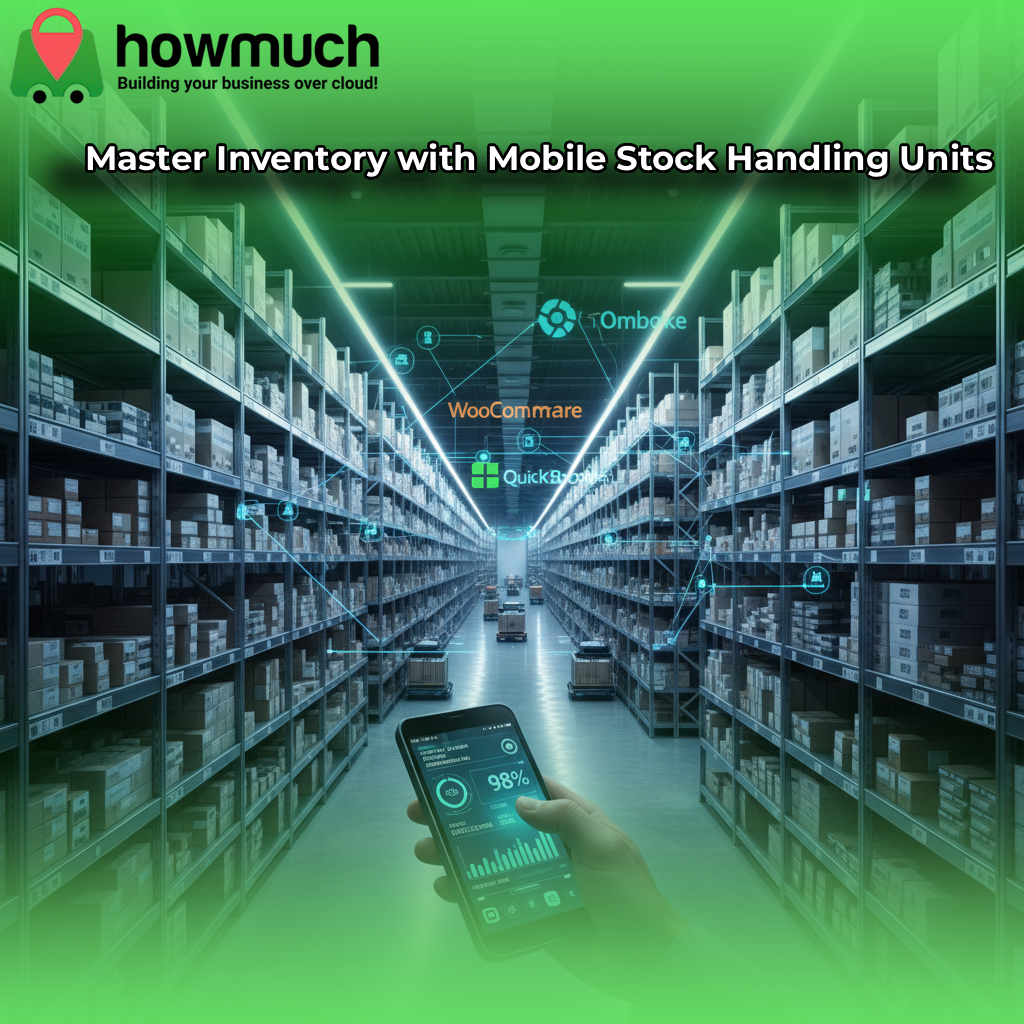The retail industry is undergoing a transformative journey in response to changing consumer expectations and technological advancements. Its modernization refers to the process of updating and improving various aspects of the retail sector to meet the changing demands of consumers, improve efficiency, and enhance the overall shopping experience. It involves implementing technologies, strategies, and practices that optimize operations and customer interactions.
Need of Modernizing in the Retail Industry
Modernization is not just a choice; it's a necessity to stay ahead in an ever-evolving market. In summary, modernizing the retail industry brings numerous benefits, including improved customer experience, increased operational efficiency, Omni channel, retailing capabilities, data-driven decision-making, and a competitive edge in the market.
There are several reasons why modernizing the retail industry is important:
1. Enhanced Customer Experience: Modernizing the retail industry allows for improved customer experience through the implementation of technologies like personalized recommendations, efficient checkouts, and seamless online and offline integration.
2. Increased Operational Efficiency: By adopting modern technologies such as inventory management systems, automated processes, and data analytics, retailers can streamline operations, reduce costs, and optimize supply chains. This results in improved productivity and profitability.
3. Omni-Channel Retailing: Modernization allows retailers to meet customer expectations by providing a seamless shopping experience across various channels, including online platforms, mobile apps, and physical stores. This integration helps retailers reach a wider customer base and compete in the digital age.
4. Data-Driven Decision-Making: The retail industry generates vast amounts of data, and modernization enables retailers to harness this data for making informed business decisions. By leveraging analytics and machine learning, retailers can gain valuable insights into consumer behavior, market trends, and inventory management, leading to more effective decision-making.
5. Competitive Advantage: By embracing modernization, retailers can stay ahead of the game and differentiate themselves from competitors. Innovative technologies and strategies help retailers adapt to changing consumer preferences and market dynamics, enabling them to deliver unique products and services to their target audience.
Modernizing Approaches
There are several ways to modernize the retail industry. Here are a few strategies that can be implemented:
1. Embrace e-commerce: Establishing an online presence and enabling online purchasing can expand your customer base and reach. Creating a user-friendly website with secure payment options and fast shipping can enhance customer satisfaction.
2. Personalization through Data Analytics: Utilize customer data to understand their preferences and shopping behaviors. This information can be used to provide personalized recommendations, targeted marketing campaigns, and a more tailored shopping experience.
3. Implement Mobile Technology: Develop a mobile app or optimize your website for mobile devices. This allows customers to easily browse and purchase products on their smartphones, enhancing convenience and accessibility.
4. Adopt digital payment solutions: Incorporate various digital payment methods such as mobile wallets or contactless payments. This speeds up the transaction process and offers customers more flexibility in their payment options.
5. Use AI and automation: Implement technologies such as artificial intelligence (AI) and automation to streamline inventory management, optimize supply chains, and enhance customer service through chatbots or virtual assistants.
6. Enable seamless Omni channel experiences: Integrate physical and online retail channels to provide a seamless experience. Allow customers to browse and purchase products online and pick them up at physical stores, or vice versa.
7. Enhance customer engagement: Leverage social media platforms to engage with customers, promote products, and gather feedback. Social media can also be used for customer support and to build brand loyalty.
8. Emphasize sustainability: Incorporate sustainable practices into your retail operations, such as reducing carbon emissions, embracing eco-friendly packaging, and offering sustainable product options. This appeals to environmentally conscious consumers.
Role of POS in Modernizing Retail
POS (Point of Sale) systems play a crucial role in retail industry modernization. A POS system refers to the combination of hardware and software used to manage sales transactions and related operations at the point of purchase.
POS (Point of Sale) machines have played a significant role in modernizing the retail industry and have revolutionized the way retailers conduct their business operations.
Integration of POS in Retail Industry
1. Streamlined Sales Process: POS systems automate the sales process by efficiently recording and processing transactions. They enable quick and accurate scanning, calculation of prices, and generation of receipts, making the checkout process faster and more efficient.
2. Inventory Management: POS systems provide real-time inventory tracking, allowing retailers to monitor stock levels, track sales trends, and automate reordering processes. Helps in reducing out-of-stock situations, optimizing inventory turnover, and preventing overstocking or understocking.
3. Customer Relationship Management (CRM): Many modern POS systems include CRM functionalities, allowing retailers to collect and analyze customer data. This helps in understanding customer preferences, generating personalized offers, and improving customer loyalty and retention.
4. Sales Analytics and Reporting: POS systems generate insightful reports and analytics that provide retailers with valuable business intelligence. They can analyze sales performance, identify top-selling products, evaluate employee productivity, and make informed business decisions based on data-driven insights.
5. Integration with E-commerce: As online retail continues to grow, integration between POS systems and e-commerce
Challenges and Solutions
Implementing POS systems may pose challenges and the most important and crucial challenge is Staff Training, Data Security and Financial Considerations
Staff Training: Successful integration of POS systems requires proper training. Understand the importance of educating staff and ensuring a smooth adoption process. To train your staff to maximize use of POS to have the real benefits must be challenging but many POS applications have strong customer support to train your staff. We recommend Howmuch POS
Security Considerations, Safeguarding Customer Data and Financial Transactions. Security is a top priority. Learn about the measures businesses should take to safeguard customer data and financial transactions in the age of modern retail.
User-Friendly POS Systems for Easy Adoption, It is necessary that the system must have user friendly interface and will get training on all the features of user-friendly POS systems to use it effectively.
Benefits of POS in Modernization
Improved Transaction Speed POS systems significantly enhance transaction speed, reducing wait times for customers and improving overall service efficiency.
Enhanced Data Accuracy Manual entry errors can be costly. POS systems ensure accurate recording of sales, inventory, and customer information, providing businesses with reliable data for decision-making.
Inventory Management and Analytics Efficient inventory management is crucial for retail success. POS systems enable real-time tracking of inventory levels, helping businesses optimize stock levels and reduce the risk of overstocking or stockouts.
Read here Role of Technology in POS
Future Trends in Retail Modernization
Emerging Technologies Shaping the Industry, with POS you can stay informed about the latest technologies influencing the retail sector and how businesses can prepare for future advancements.
Anticipated Developments in POS Systems, can easily figure out the potential developments in POS systems, from advanced features to improved integration with other business tools.
Conclusion
Retail modernization is not just a trend; it's a necessity for businesses to thrive in a dynamic market. Embracing change and adopting advanced POS systems are key steps toward ensuring sustained success in the evolving retail landscape.
We recommend the POS howmuch POS for the modernization of your business, if you are a small business owner or have multiple chains Howmuch POS will be the one to make the difference in your business growth.
Overall, POS systems contribute to retail industry modernization by enhancing operational efficiency, improving customer experience, and providing retailers with the tools to make data-driven decisions. This integration streamlines inventory management, and order processing, and ensures consistency in pricing and customer data across platforms.



